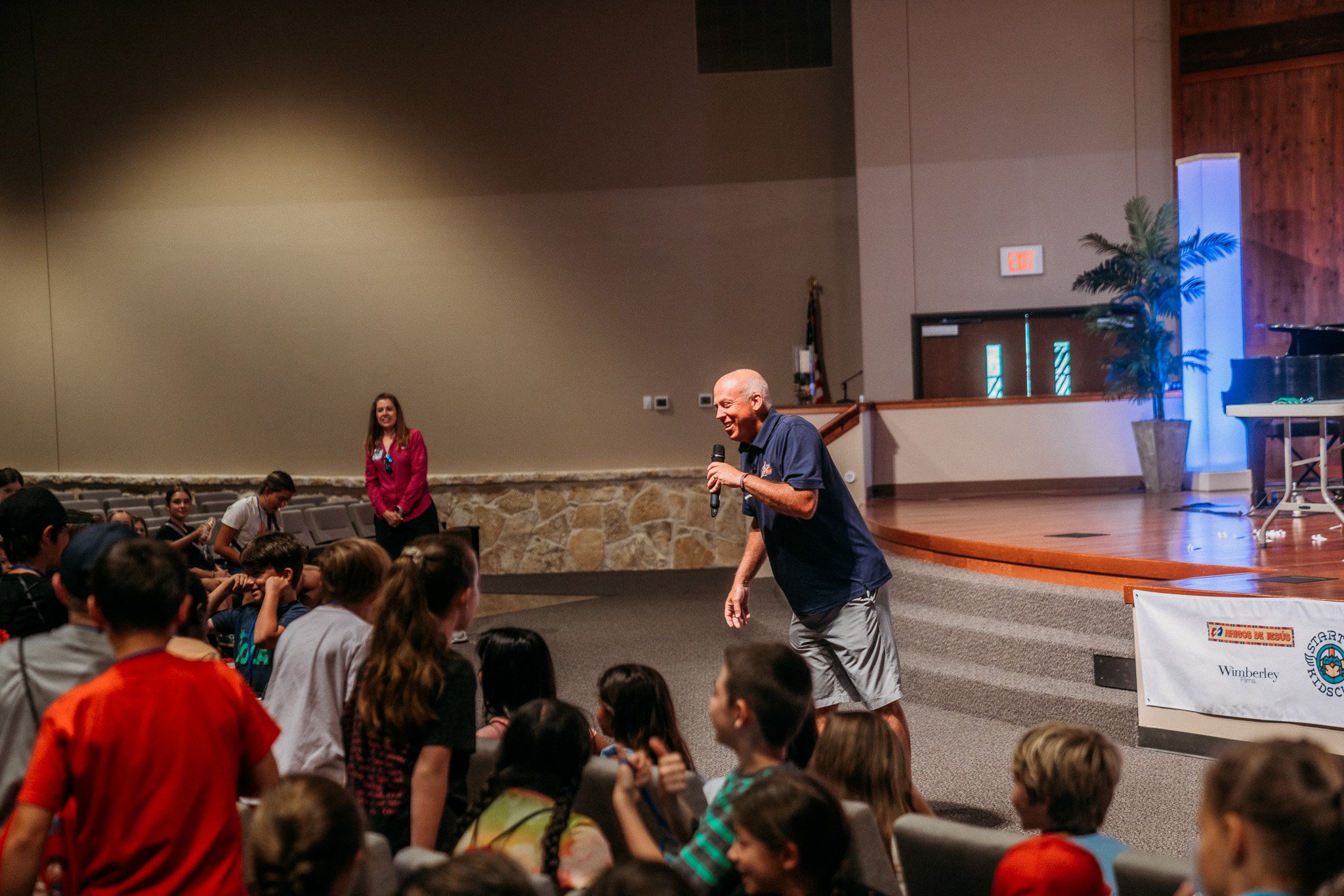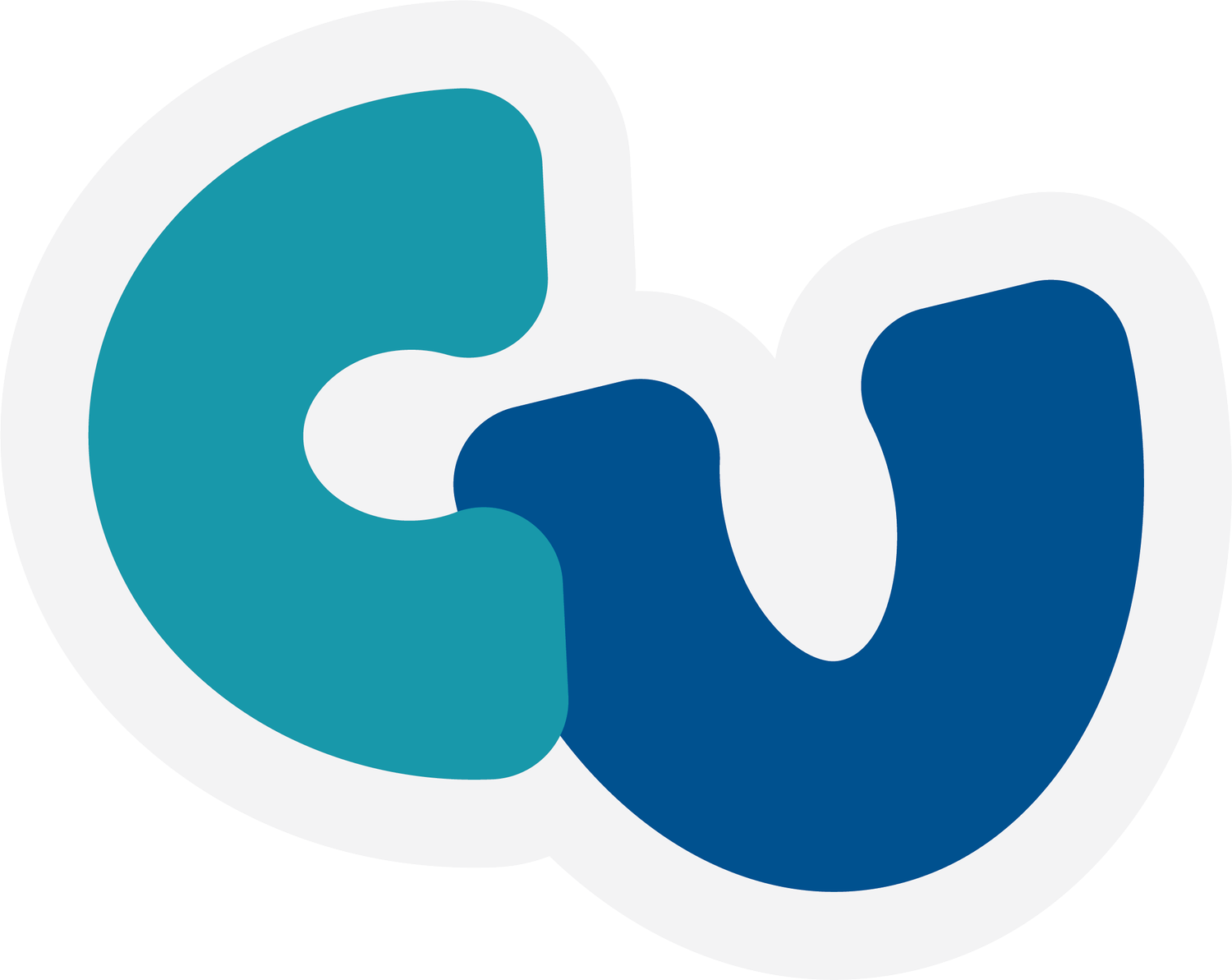Camp CommUnity or CU as we like to call it, is a Wimberley-created, community-centered program built to give all kids the chance to grow and learn in a safe, fun, and inclusive environment. Our one-of-a-kind, hands-on programs focus on teaching the next generation to become resilient, self-sustainable, and independent individuals through the use of experiential learning.
At CU, we believe experience is the most powerful tool our children need and through hands-on learning, we empower them to build crucial life skills and help bridge the connection from what they learn in the classroom to the real world— not to mention, break poverty cycles and other systemic barriers.
for our community-
By Our Community.
In a true “lead by example” story, Camp CommUnity was born when a mother began to notice the out-of-school time gaps the families in her community faced. After visiting with other leaders, she and a group of community members, later known as the “CU Leadership Team” decided the key to solving the problem wasn’t bringing in an outside program, but turning inward.
With the wealth of knowledge and rich culture right in our very own community, Camp CommUnity was created to give all generations the ability to take ownership of what the future holds by investing in each other. During the first year, programming prioritized community, creating platforms for the sharing of knowledge between young and old, as well as building a deeper appreciation of the community itself. While academics and other soft skills were reinforced, integrity and respect were celebrated.
It didn’t take long to realize— the community wasn’t just building something spectacular, but by uniting together, it was creating the meaningful impact that it so desperately needed.
Here, we VALUE-
OUR MISSION IS TO ENSURE ALL CHILDREN ARE AFFORDED TO OPPORTUNITY IN SUCCEED AT LIFE BEYOND THE CLASSROOM.
80% of a child’s days spent out of school.
Research has revealed that when children have access to participate in organized, high-quality, out-of-school time activities it positively affects students educational and social/emotional outcomes—especially those who are at risk. Studies have also found that for every $1 invested in out-of-school time programming, the economic return of investment is between $4-6 and can be directly seen in reduced drug and alcohol addiction, increased graduation rates, reduced crime rates, and increased physical activity.
-
During out-of-school times like summer, students lose an average of 2.6 months of math skills and 2 months of reading skills, something referred to as "the summer slide".
Students suffering financial inequalities are 3x more likely to experience academic loss and by sixth grade, are on average two grade levels behind.
9 out of 10 teachers report they have to spend at least 3 weeks reteaching lost skills to students each year.
-
69% of families report difficulties affording out-of-school time care.
1 in 3 students experiences food insecurities when they are out of school.
-
The average family spends 34 more minutes together each day.
During the summer months, the average amount of time a child spends alone each day is 7.4 hours.
Kids without role models are 67% less likely to get a job.
-
Only 27% of high school graduates are career or military-ready and 49% of college graduates feel underqualified and underprepared for entry-level positions.
65% of the jobs that students enrolled in third grade in 2023, will work have yet to be created.
For the first time in over a century, more adult children are living at home with their families with the average age a child before a child leaves be 27.
The need is real
Click each drop-down to review current statistics facing today’s youth.

CU Fill the Gaps
THE FUTURE DRIVES US
Click each drop-down to view CU Impact Goals
-
To provide a child-centered, TEKS complementary curriculum with an emphasis on ELA, Reading, Math, Science, Social Studies, and Social and Emotional Learning to stop academic loss.
Make out-of-school time and summer learning both tangible and obtainable for families facing financial barriers.
-
Ensure students receive hot, well-balanced, healthy meals daily
Create a safe, welcoming, and inclusive environment for students to explore and take safe risks
Enhance student’s 21st-century skills foundation and knowledge
-
Expose students to various career options, fields, industries, and technologies that exist or can be created.
Build multi-generational connections by tapping into the wealth of knowledge in the community and empowering residents to share their talents, interests, and trades with students during assemblies and break-out electives
Create and instill community respect, interest, and awareness
-
Create a safe, welcoming, and inclusive environment for students to explore and take safe risks
Promote and instill a sense of agency by teaching: creative thinking, innovation, critical thinking, collaboration, problem-solving, and other soft skills.
Reinforce student’s resiliency and self-confidence










